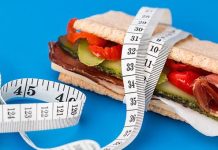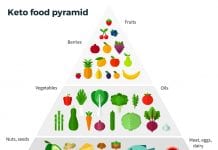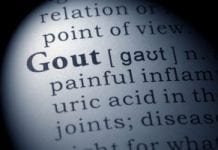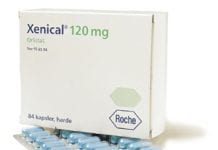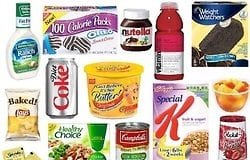Table of Contents
Does A Keto Diet Help Or Hurt Your Heart?
Although the Ketogenic or Keto Diet has been around for 80 years, it had really just begun to hit the mainstream. Undoubtedly, the most common question regarding the eating plan seems to be, “is there a relationship between The Ketogenic Diet and heart disease?
In this post, we are going to examine that relationship and tell you the unabashed truth.
Let’s get started.
On one side of the argument, we have conventional medicine screaming, “It is all about the lipid profile dummy!”
Click to read: Does a Ketogenic Diet Lower Cholesterol?
Despite a mountain of evidence showing otherwise, many medical professionals are still claiming that fat is the main cause of cardiovascular disease. A high total cholesterol number means you are on the verge of a heart attack and everybody should be on statin drugs according to these dinosaurs. 
Across the way, the low carb, high fat people are adamant that all carbs are pretty much the devil and fat is a cure-all.
Just like in politics, sometimes we need to stop talking and start listening to each other.
Now, I am a big believer in Keto. I gave it a two-month trial and achieved great results involving weight loss, blood sugar, and my lipid profile. (Yes, your lipid profile is still important!)
However, you have to understand, that it is not the ONLY way to achieve your healthy heart goals. Other methods are employed successfully every day.
In addition, The Ketogenic Diet can be very harmful for your cardiovascular system if you do not follow the eating guidelines.
So, let us look at a few ways to guarantee that The Keto Diet will improve your cardiovascular system and keep you from having that heart attack.
Click to read: Does a Ketogenic Diet Cause Gout?
Number One: Don’t Gorge Yourself On Meat And Dairy!
Keto is a high fat diet, not high protein. Most people struggle with this part and eat much more that 20% of their total calories in protein.
You should be eating a ton of vegetables cooked in healthy oils. Also, eat plenty of fats like coconut oil, olive oil, avocados, grass fed butter and nuts that grow on trees. 
Depending on your weight, your meat consumption should be around 5-7 ounces a day and should be from sources that are grass fed, free range, and wild caught. The reason is that man always screws everything up and food is no exception.
Omega 6 Fatty acids are found in farm or factory raised food, which lead to inflammation in the body. (Now, we have a completely new set of problems including high triglycerides and other heart related problems!)
Don’t feel like you have to eat meat all the time. Keep it to the recommended amount and help your heart and lungs!
Number Two: Eat Foods Full Of Nutrients!
All eating plans should have the same goal; consume enough vitamins and minerals to keep your body functioning at maximum capacity.
While fat has been proven to NOT cause heart disease, what has been proven is that inflammation in the body CAN cause heart disease. 
Without proper nutrients to fight off this inflammation, we are destined to suffer from not only heart disease, but also other serious medical problems including cancer, cognitive problems, diabetes and more.
Again, your best bet is plenty of veggies and the right kind of protein.
See more weight loss articles.
Number Three: Try Intermittent Fasting
Although fasting has been practiced for centuries for religious or weight loss reasons, it has recently ascended to the forefront in the health world.
The reason is that research has shown it to be very effective in weight loss and stabilizing glucose levels.
It works perfectly on The Keto Diet also. 
When I went through my trial, I also utilized intermittent fasting. My favorite among the many types of fasts is the 16-8 method (this is what I used).
This means I consumed all my meals within an 8-hour period and then fasted for 16 hours.
Sound tough?
Surprisingly, it was not. I ate supper (or dinner depending on where you are from) around seven pm and then did not eat again until lunch the next day at 11 am.
I started every morning with a big glass of green tea, (which is allowed, as is coffee). This completely quelled my appetite until the afternoon meal.
Not only does this have many health benefits including reducing inflammation, I was amazed at how good I felt during the day. I was much more alert and never felt sleepy.
Fasting helps in many ways…I love it.
Check out what happened when I tried the Keto Diet!
Conclusion
To strengthen your cardiovascular system, a low-carb, high fat diet is a fantastic solution. However, keep in mind that you must eat the correct types of fats and lots of them. Protein intake should be low and your food should be nutrient dense.
Follow this advice and your heart should be strong and healthy for a long, long time!

Citations:
- A Cardiologist’s Take On the Keto Diet – Penn Medicine. (n.d.). A Cardiologist’s Take on the Keto Diet – Penn Medicine. https://www.pennmedicine.org/news/news-blog/2019/april/a-cardiologists-take-on-the-keto-diet.
- Effects Of Ketogenic Diets On Cardiovascular Risk Factors: Evidence From Animal And Human Studies. (2017, May 1). PubMed Central (PMC). https://www.ncbi.nlm.nih.gov/pmc/articles/PMC5452247/.
- The DASH Diet Plan - January 5, 2023
-
How To Do Portion Control For Weight Loss - June 30, 2022 - The Belly Fat Cure - November 13, 2021


